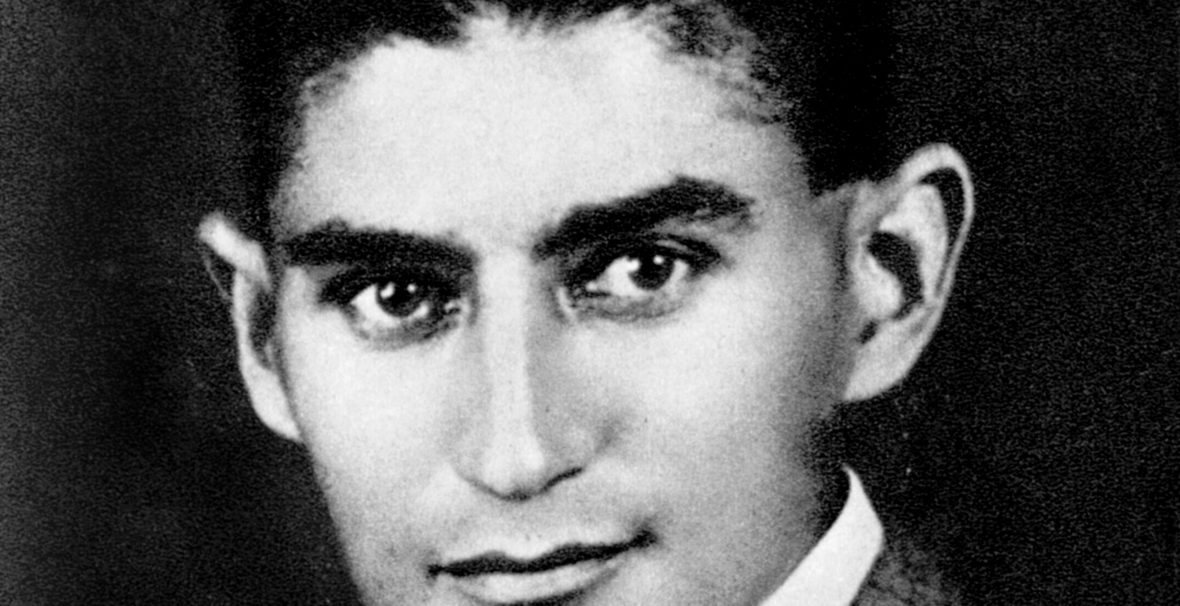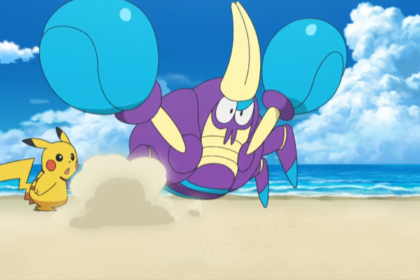Franz Kafka was a German speaking Bohemian Jewish novelist and short story writer, widely regarded as one of the major figures of 20th century literature. His work, which fuses elements of realism and the fantastic, typically features isolated protagonists faced by bizarre and surrealistic predicaments and incomprehensible social bureaucratic powers. Take a look below for 30 more fun and interesting facts about Franz Kafka.
1. Kafka is known for exploring themes of alienation, existential anxiety, guilt and absurdity in his work.
2. His best known works include The Metamorphosis, The Trial and The Castle.
3. The term “Kafkaesque” has entered the English languages to describe situations like those in this writing.
4. Kafka was born into a middle-class, German speaking Jewish family in Prague, the capital of the Kingdom of Bohemia, then part of the Austro-Hungarian Empire, today part of the Czech Republic.
5. He trained as a lawyer, and after completing his legal education, was employed by an insurance company, forcing him to relegate writing to his spare time.
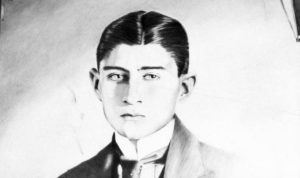
6. Over the course of his life, Kafka wrote hundreds of letters to family and close friends, including his father, with whom he had a strained and formal relationship.
7. He became engaged to several women but never married.
8. Kafka died in 1924, at the age of 40, from tuberculosis.
9. A few of Kafka’s works were published during his lifetime: the story collections Contemplation and A Country Doctor, and individual stories, such as The Metamorphosis, were published in literary magazines but received little public attention.
10. Kafka’s unfinished works, including his novels, were ordered by Kafka to be destroyed by his friend Max Brod, who nonetheless ignored his friend’s direction and published them after Kafka’s death.
11. His work went on to influence a vast range of writers, critics, artists and philosophers during the 20th century.
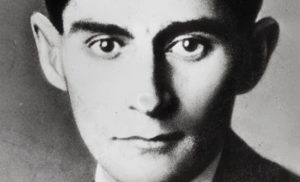
12. Kafka’s father was Hermann, a retailer of fancy goods, and his mother was Julie, a homemaker.
13. After his graduation from law school, Kafka worked in an unpaid position for a year, which was customary. He worked as a law clerk in an apprenticeship type position.
14. Even before he became sick with tuberculosis, Kafka had suffered from health issues including depression, migraines, insomnia and anxiety.
15. In 1913, Kafka’s collection of short stories titled Mediation was published.
16. In 1914, Kafka’s short story Before the Law was published.
17. When Kafka died, only a small number of readers knew who he was. However, his writing went on to influence German literature and become very popular during World War II.
18. Kafka wrote about faceless organizations in his work, as well as mysterious authority and dominating bureaucracy.
19. In 1988, Kafka’s handwritten manuscript of The Trial sold for $1.98 million.
20. Kafka died near Vienna on June 3, 1924. The cause of death was noted as starvation, because the pain in his throat made it impossible for him eat and parenteral nutrition didn’t exist yet.
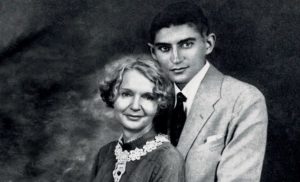
21. Kafka feared that people would find him mentally and physically repulsive. However, those who met him found him to possess a quiet and cool demeanor, obvious intelligence, and a dry sense of humor; they also found him boyishly handsome.
22. Although Kafka showed little interest in exercise as a child, he later showed interest in games and physical activity, as a good rider, swimmer and rower.
23. On weekends, he and his friends went on long hikes, that were often planned by Kafka himself.
24. His other interests included alternative medicine, modern education systems such as Montessori, and technical novelties such as airplanes and film.
25. Writing was important to Kafka as he considered it a “form of prayer.”
26. He was known for being highly sensitive to noise and preferred quiet when he was writing.
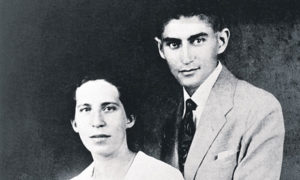
27. Prior to World War I, Kafka attended several meetings of the Klub mladych, a Czech anarchist, anti-militarist, and anti-clerical organization.
28. During the communist era, the legacy of Kafka’s work for Eastern bloc socialism was hotly debated. Opinions ranged from the notion that he satirized the bureaucratic bungling of a crumbling Austria-Hungarian Empire, to the belief that he embodied the rise of socialism.
29. He was deeply fascinated by the Jews of Eastern Europe, who he thought possessed an intensity of spiritual life that was absent from Jews in the West.
30. Towards the end of his life, Kafka sent a postcard to his friend Hugo Bergman in Tel Aviv, announcing his intention to emigrate to Palestine. However, Bergman refused to host Kafka because he had young children and was afraid that Kafka would infect them with tuberculosis.

